
A Yarmouk university, Irbid - Jordan
E Pharmacy.fac@yu.edu.jo
P 027211111 (2760)
F 3965 / 7211165
Jobs | Study@YU | Students | Faculty & Staff | Alumni
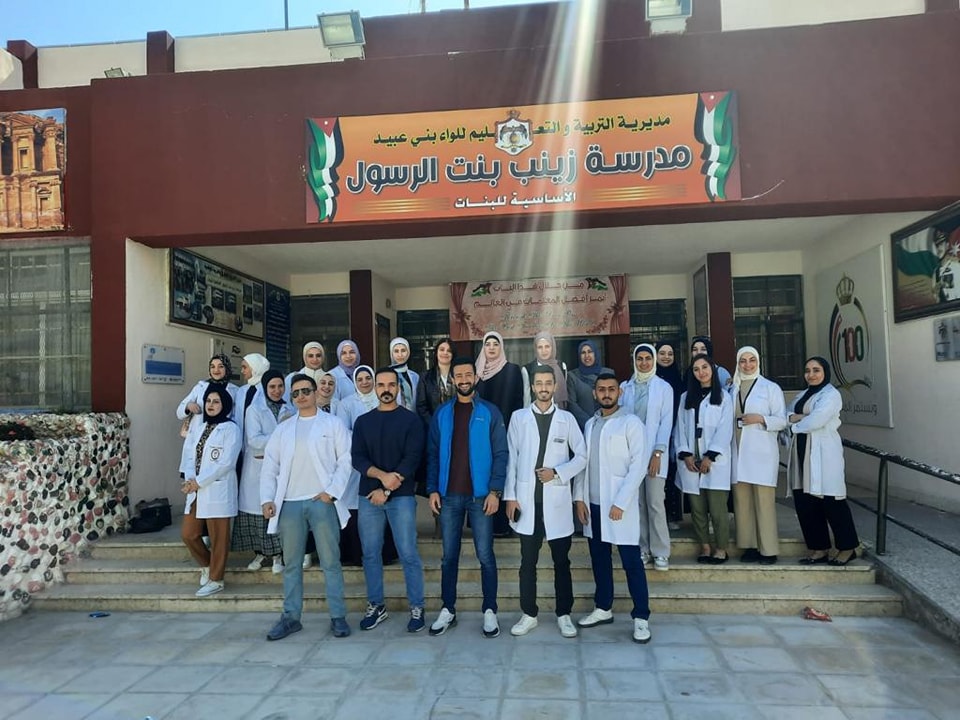
In conjunction with Dr. Muhammad Obeid Al-Aysra, the Faculty of Pharmacy participated in the medical day conducted at Zainab Al-Rasoul Primary School for Girls / Bani Obeid District on 05-03-2023. In which a number of students from the Faculty of Pharmacy participated on this day and provided community service in the pharmaceutical area by offering participants a variety of pharmaceutical advice and guidance.
 |

Proceeding from the vision and mission of the Faculty of Pharmacy at Yarmouk University, a free medical day was held on the third Saturday of February of 2023 in Ramtha district / Al-Thunaiba village / Al-Rabayah complex. The medical and pharmaceutical services were provided to more than 250 people of the local community. The team from the university and the faculty were participated in this event. At the end, Mayor of Sahl Houran, Engineer Ali Al-Shaboul provided a honorary shield for the participated team.
 |
 |
 |
The Faculty of Pharmacy presented by the Dean Prof. Mervat Alsous and the Dean Assistant Dr. Omar Gammoh, participated in a meeting held at AQACHEl on Sunday 19/02/2023 to discuss implementing the Jordanian National Qualifications Framework (JNQF) according to the AQACHEI legislations.

On the occasion of Women's Day, and in commitment to its role in community service, the Faculty of Pharmacy delivered an awareness lecture about Fibromyalgia at the National Center for Women's Health in Tafilah. The lecture was presented by Dr. Omar Gammoh from the Department of Clinical Pharmacy and Pharmaceutical Practice.
 |
 |
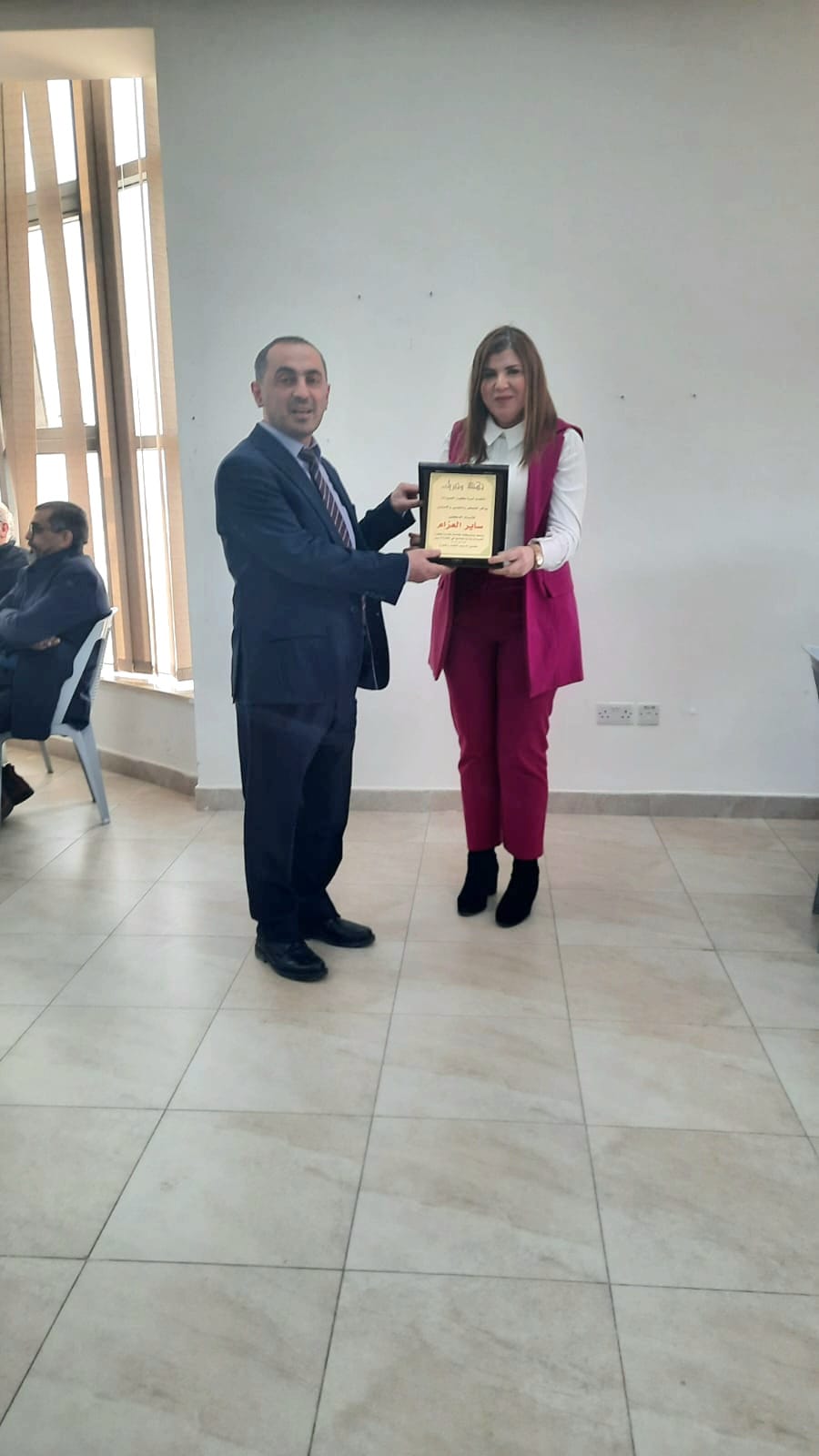
On the occasion of the beginning of the second semester, the academic and administrative staff of the college got together for a meeting on Monday, February 27, 2023. At the beginning of the meeting, the Dean of the Faculty of Pharmacy, Professor Dr. Mervat Al-Sous, gave a speech in which she welcomed those in attendance and provided an update to the staff on the most significant accomplishments and activities that had been carried out by the Faculty of Pharmacy.
Professor Dr. Al-Azzam, the former Dean of the Faculty of Pharmacy, was recognized for his contributions to the Faculty of Pharmacy. Also, Dr. Alaa Al-Jabali was congratulated on his promotion to the rank of professor. In addition to the college administration, members of the academic staff and administrative staff, as well as attendees from other colleges, were present at the meeting.
 |
 |
 |
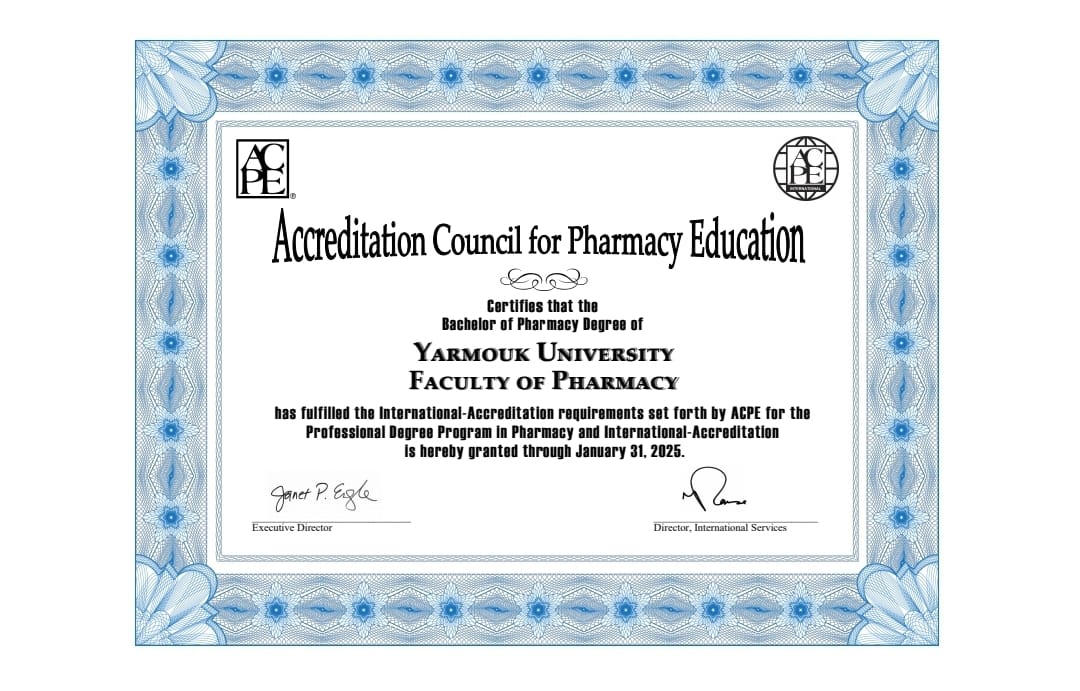
Notable success for Yarmouk University's faculty of Pharmacy
Yarmouk University - faculty of Pharmacy got accreditation from the American Council for Pharmacy Education, often known as ACPE. This certificate is regarded as one of the most prestigious and trustworthy in the world. It was granted by the American Accreditation Council after the College of Pharmacy met the international requirements and standards necessary to obtain this accreditation through an organized effort represented in providing educational systems within the faculty of Pharmacy in terms of programs and study plans, as well as equipment, laboratories, and scientific competencies.
The ACPE international accreditation certificate is part of the faculty of Pharmacy's framework and integrated strategy to raise the college's level and catch up its peers in international universities. It is important to note that the college's first-ever accreditation certificate would raise and improve its categorization and aid in the development of staff abilities by requiring adherence to the highest standards.

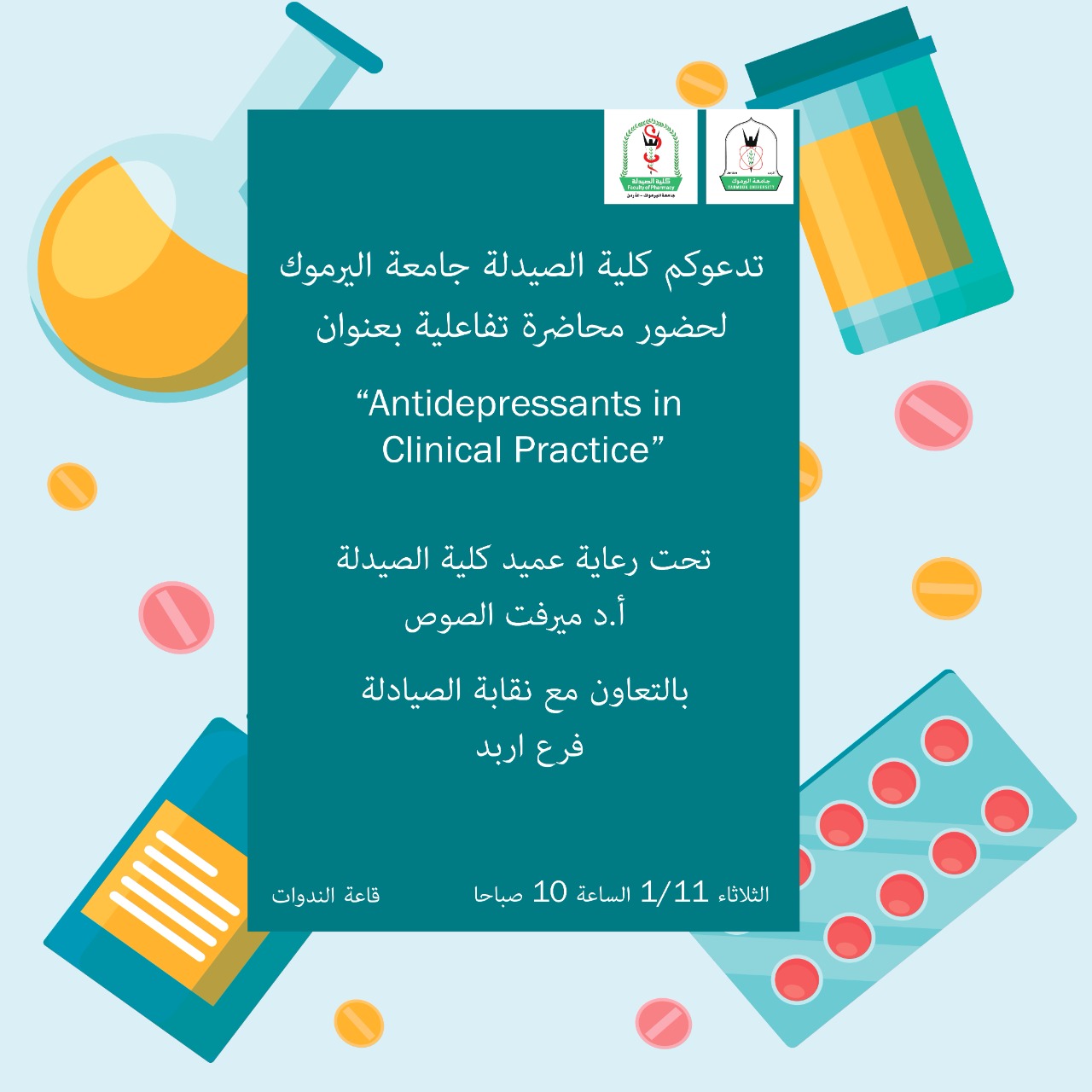
The College of Pharmacy at Yarmouk University held an interactive lecture for community pharmacists under the title Antidepressants in Clinical Practice. The lecture arranged by Prof. Mervat Al-Sous the Dean of the College of Pharmacy, in cooperation with the Sub-committee of the Jordan Pharmacists Association in Irbid, on Tuesday, November 1, 2022. The interactive lecture was moderated by Dr. Omar Gammoh, in the beginning he discussed the types of mood disorders, then he introduced the used antidepressant medications, and antidepressant related therapeutic methods.
The College of Pharmacy is taking this initiative as part of its overall mission to support pharmacists in providing professional pharmaceutical care services and to serve the local community.
 |
 |


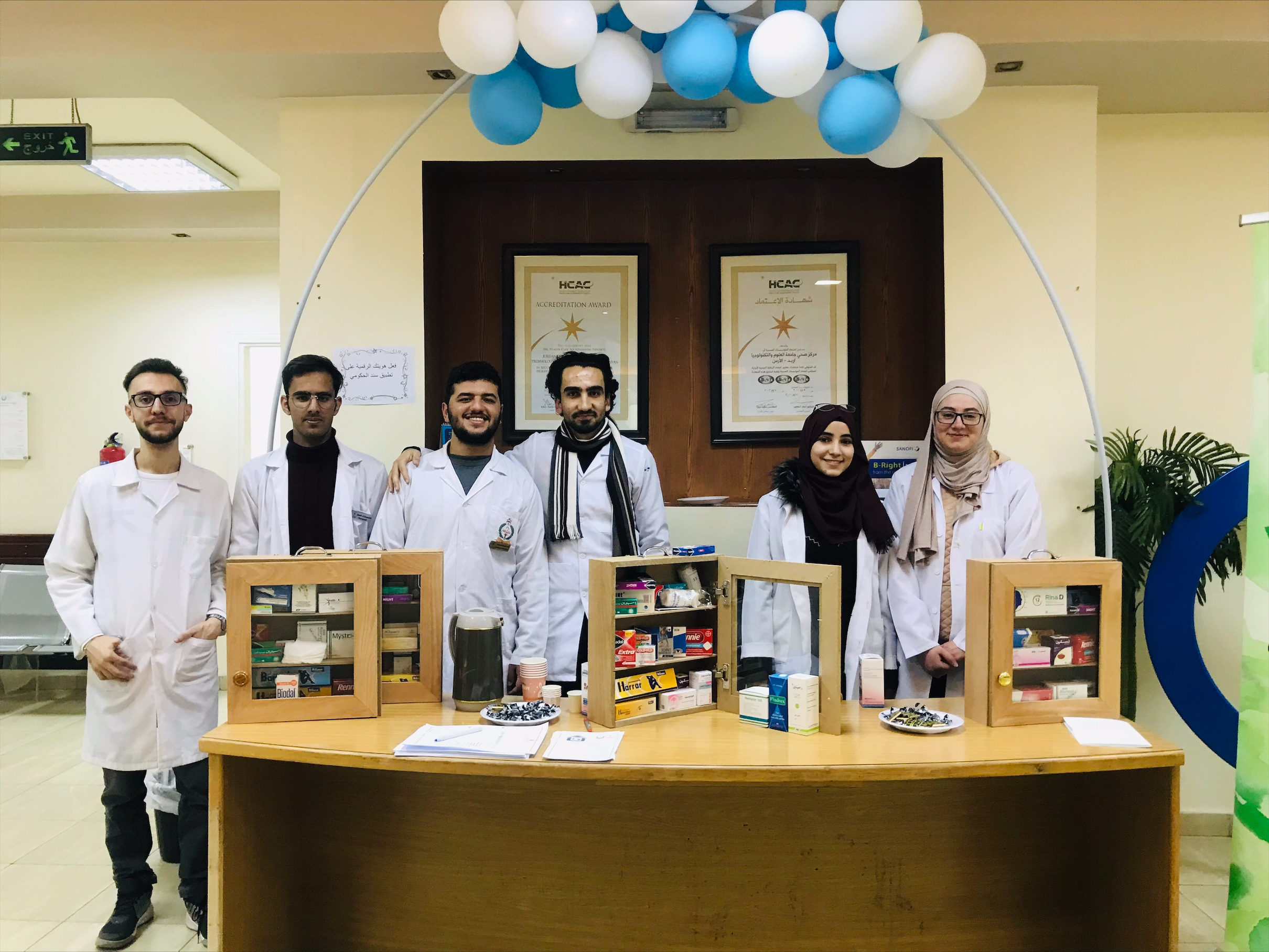
In cooperation between faculty of pharmacy at Yarmouk university and Jordan university of science and technology health center, the dean Prof. Mervat Al Sous started off the activity of the “home medicine cabinet awareness day” On 12 and 22 December of 2022.
The students directed to raise the awareness of the public of how medicines are kept safely at home in tha medicine cabinet. Besides, they focused on clarifying the different groups of the drugs that may be included within the cabinet and the correct method to use, handle and store them.
From Yarmouk University the day was supervised by the head of clinical pharmacy and pharmacy practice department; Dr. Alaa Yahya and the Pharmacist Salam Shannag and from Jordan University of Science and Technology Health center the day was supervised by the head of the health center; Dr. adi Khassawneh and the head of pharmacist division of the health center; Dr. Rawan barham.
 |

A Yarmouk university, Irbid - Jordan
E Pharmacy.fac@yu.edu.jo
P 027211111 (2760)
F 3965 / 7211165